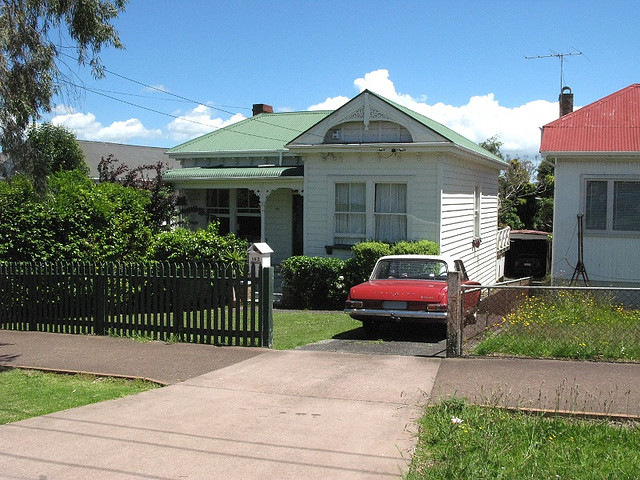Contrary to the findings of the Productivity Commission the fundamental issue with housing affordability is not lack of available land. That Commission has done the debate a major disservice by pointing the figure at land supply, the councils do not agree with them and that is a damming indictment of that piece of work. There are cities in the world with five times Auckland’s population, living in an area no larger than Auckland’s, and with housing prices lower as a percentage of income than in New Zealand.
The problem with the Productivity Commission’s analyses is that its authors are locked in a time warp, thinking that the quarter acre pavlova paradise is the appropriate model for housing still. Of course if your thinking is confined by that paradigm then it is very easy to argue there isn’t enough land. But any user pays analyses would rapidly indicate that this type of urban expansion would make housing even less affordable. Only if other ratepayers are willing to stump up with the cost of infrastructure would such a dated type of housing be affordable. No cities in the first world have kept unfettered urban sprawl their model for the future.
We all know what the problem with housing in New Zealand is. It’s the flipside of the problem the new Governor of the Reserve Bank has identified with the economy at large. He noted that the economy will not pick up until the country gets its huge external debt levels down. But look at what that money has been raised for – it has been raised overseas by our banks overseas and on-lent into the property market in New Zealand. The flipside of the high debt is simply a housing base that is valued at these record levels.
And how have we managed to drive the price of the housing stock to these dizzying levels? There are two drivers – the directive from the Reserve Bank to the banks to treat mortgage lending as the safest form of lending and therefore to expand that far more than loans to businesses that create jobs and incomes; and the tax break that tells us all that if investing in property is a tax-free path to prosperity. That toxic duo has led to us all falling into property big time, buying a few houses each as a way to get rich. Resultingly, we have driven the price of housing from twice the average household income to six times. And surprise, surprise – property is now out of the reach of a greater proportion of would-be homeowners.
As well as the above factors, the cost of building has risen enormously as well. Now that is due to both a stricter building code, and to issues around lack of competition in building supplies. But by far and away the biggest contribution to the rise in property prices has been due to the excess demand generated by the financial and taxation policies of successive governments.
So if government were really serious about making housing more affordable for those currently locked out, then it needs to
(a) Have the Reserve Bank remove its direction to banks to lend on mortgages in preference to all other forms of lending – that has seriously tilted the playing field towards property investment over all other forms.
(b) Introduce a capital tax (not a capital gains tax – See an explanation of the difference here) to augment the income tax regime so that all forms of income are captured
Do those two things and housing affordability will improve rapidly as those of us with multiple properties realise they are no longer a path to prosperity.

